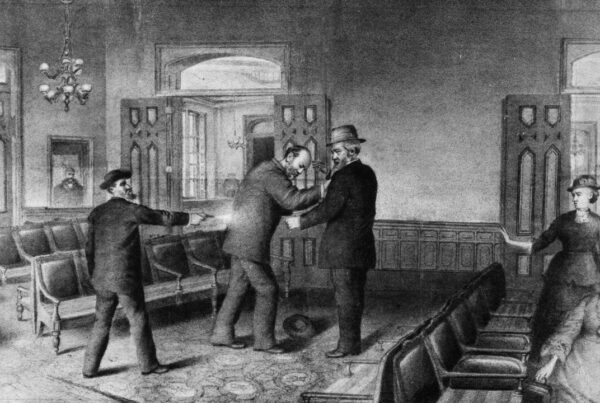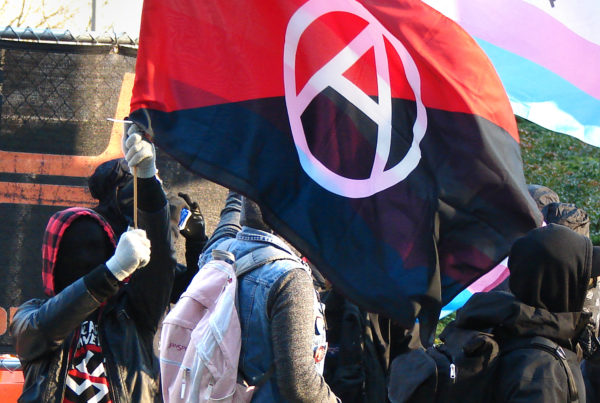Alternative Names:
Jemaa Islamiyah, Jema’a Islamiyya, Jema’a Islamiyyah, Jema’ah Islamiyah, Jema’ah Islamiyyah, Jemaa Islamiya, Jemaa Islamiyya, Jemaah Islamiyya, Jemaa Islamiyyah, Jemaah Islamiah, Jemaah Islamiyah, Jemaah Islamiyyah, Jemaah Islamiya, Jamaah Islamiyah, Jamaa Islamiya, Jemaah Islam, Jemahh Islamiyah, Jama’ah Islamiyah, Al-Jama’ah Al Islamiyyah, Islamic Group and Islamic Community
Location:
Jemaah Islamiyah (JI) is based in Indonesia and reportedly has members in Malaysia and the Philippines.
Leadership:
Abdullah Sungkar was a founder of JI, along with Ba’asyir. He died of natural causes in 1998 after leading training efforts throughout the 1990s.
Riduan Isamuddin was JI’s operational leader and a head of a regional JI council until 2003 when he was arrested by Thai officials. He was also reportedly AQ’s director of operations in East Asia. He is currently in U.S. custody.
Abu Jibril, also known as Mohamad Iqbal Abdurraham was second-in-command, and was JI’s primary recruiter. He was arrested in Malaysia in June 2001.
Mohammed Noordin Top allegedly led a faction of JI responsible for several attacks in the early 2000s. He was killed in a police raid in September 2009.
Azhari Husin was a bomb-maker for the group who was suspected of planning several attacks in the early 2000s. He was killed in a police raid in 2005.
Abu Bakar Ba’asyir, also spelled Abu Bakar Bashir, was a founder of JI along with Sungkar. He was JI’s spiritual leader until he founded the splinter group Jemaah Ansharut Tauhid (JAT) in 2008 after leadership disagreements about group strategy.
Sansui was a senior leader of JI. He was killed by Philippine security forces in November 2012.
Membership:
The Australian National Security services estimated in 2014 that JI membership was between 900 and several thousand.
In addition to recruiting its members from personal contacts and religious study groups, JI recruit’s members through a network of 50 Islamic boarding schools. In addition, it has been reported that some members have been recruited in prison.
Funding Sources:
JI gets its funding from several sources including; member contributions, charitable organizations, legitimate business activities, criminal activities and financiers in Saudi Arabia, Yemen, and the broader Middle East.
There is also evidence of financial support and training being provided to JI by Al Qaida. Including in 2002, when Al Qaida funded the Bali bombing.
Origins
In the late 1980s, clerics Abdullah Sungkar and Abu Bakar Ba’asyir fled to Malaysia. They began to form a collective of followers and facilitated travel to Afghanistan for Southeast Asian Muslims who were looking to join the fight against the Soviets. Many of JI’s men were train in Afghanistan through the mid-1990s and some were trained by Al Qaida.
JI relocated to Indonesia after the political and economic crises in 1998. That same year, Sungkar died of natural causes. Christian and Muslim conflict erupted in 1999 and 2000 during the transition to democracy. This lead to JI gaining significant operational support and experience by attacking Christian churches and priests. The group was also responsible for a string of church bombings in December 2000.
In the early 2000s, JI began to focus its attacks on Western targets, a shift that was publicly announced by Ba’asyir. In December 2001, security officials in Singapore stopped a JI plot to attack U.S., Israeli, British, and Australian diplomatic buildings. Subsequent attacks on public spaces like malls, hotels, and restaurants demonstrated the organization also seemed to become more willing to accept collateral loss of Muslim life. In October 2002, JI perpetrated its most notorious attack when it bombed two Bali nightclubs popular with foreign tourists, especially Australians, killing 202.
After the Bali Bombings, Indonesian authorities joined with other governments in isolating and diminishing the capabilities of JI. In response, some of JI’s membership wanted to distance itself from Al Qaida and abandon mass casualty strategy. This lead to the group splintering; with some of the group focusing on religious outreach, while other factions continuing to carry out attacks that were often attributed to the group as a whole.
Between 2003 and 2009, Noordin Top was one of the most prominent JI leaders, and was responsible for the faction that attacked the J.W Marriott Hotel in August 2003, the Australian Embassy in September 2004, and the suicide bombing in Bali in October 2005.
The continued efforts of national security forces began to seriously degrade JI’s operational capabilities, and by 2002, Southeast Asian governments arrested over 400 suspects including high ranking officials.
JI’s leaders seemed to set the group on a firm path to becoming a nonviolent organization in 2008. This prompted Ba’asyir to leave and form a new organization, Jemaah Ansharut Tauhid (JAT). In 2011, Ba’asyir was arrested and convicted for operating a militant training camp. The last attack associated with JI came in July 2009, when suicide bombers attacked the J.W. Marriot in addition to the Ritz-Carlton in Jakarta. In 2014, Ba’ayshir allegedly declared his support for ISIS from prison, but what remains of JI’s leadership today is firmly anti-ISIS.
Major Attacks:
December 24, 2000: JI targeted several Christian churches across Indonesia. (14 killed, 12 wounded)
October 12, 2002: JI planned and executed bombings at a nightclub in Bali, killing 202. Many of the victims were foreign tourists, including 88 Australians. (202 killed, unknown wounded)
March 4, 2003: Authorities suspected JI’s involvement in bombings near a ferry terminal in the southern Philippines where the government was fighting Muslim separatist rebels. (16 killed)
August 5, 2003: JI was responsible for bombing the JW Marriot in Jakarta. (12 killed, 150 wounded)
September 9, 2004: JI reportedly set off a bomb near the Australian embassy in Jakarta. (10 killed, 100 wounded)
October 2, 2005: JI was believed to be responsible for bombings in Jimbaran Bay and Kuta, tourist destinations in Bali, Indonesia. (26 killed, 102 wounded)
July 17, 2009: The JW Marriot and the Ritz-Carlton hotels in Jakarta’s business district were bombed by militants who were allegedly part of Noordin Top’s JI cell. (9 killed)
Ideological Roots:
Analysts have described JI’s ideological roots as a combination of Darul Islam and Saudi Wahhabism. Darul Islam is a violent radical movement advocating the establishment of Islamic Law in Indonesia. JI has similar Salafist roots to many other extremist and terrorist organizations.
Objectives:
JI aims to establish an Islamic caliphate spanning Indonesia, Malaysia, southern Thailand, Singapore, Brunei, and the southern Philippines. The goal is to institute a pan-Islamic state in Southeast Asia under Sharia Law.
Tactics:
JI has been responsible for a series of bank robberies, hijackings, and several major bombings of civilian targets. In almost all cases, violent action taken by JI was done so through the use of explosive devices. These attacks deliberately targeted foreign presence and interests in Southeast Asia. In addition, JI often conducted attacks against other religious groups, for example Christians during the early 2000s.
Updated on January 13, 2016.







